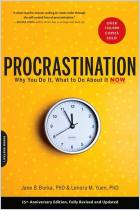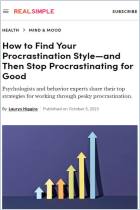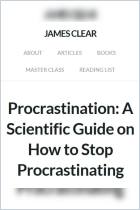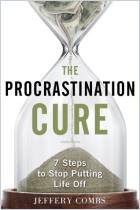
Why You Procrastinate (It Has Nothing to Do with Self-Control)
If procrastination isn’t about laziness, then what is it about?
Recommendation
Procrastination is a self-reinforcing cycle. The more you stall important work, the more you’ll continue to do so. Yet procrastination doesn’t result from a dearth of motivation or productivity; it manifests from a failure to regulate negative emotions. If you are mired in a chronic procrastination cycle, journalist Charlotte Lieberman helps you dig your way out. She interviewed an array of psychologists, authors and professors to figure out how best to end the self-destructive cycle. Lieberman provides a range of tips to guide procrastinators into a more positive frame of mind.
Summary
About the Author
Journalist Charlotte Lieberman writes about evolutionary and behavioral psychology, mental health and self-acceptance.

















Comment on this summary or Comenzar discusión